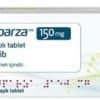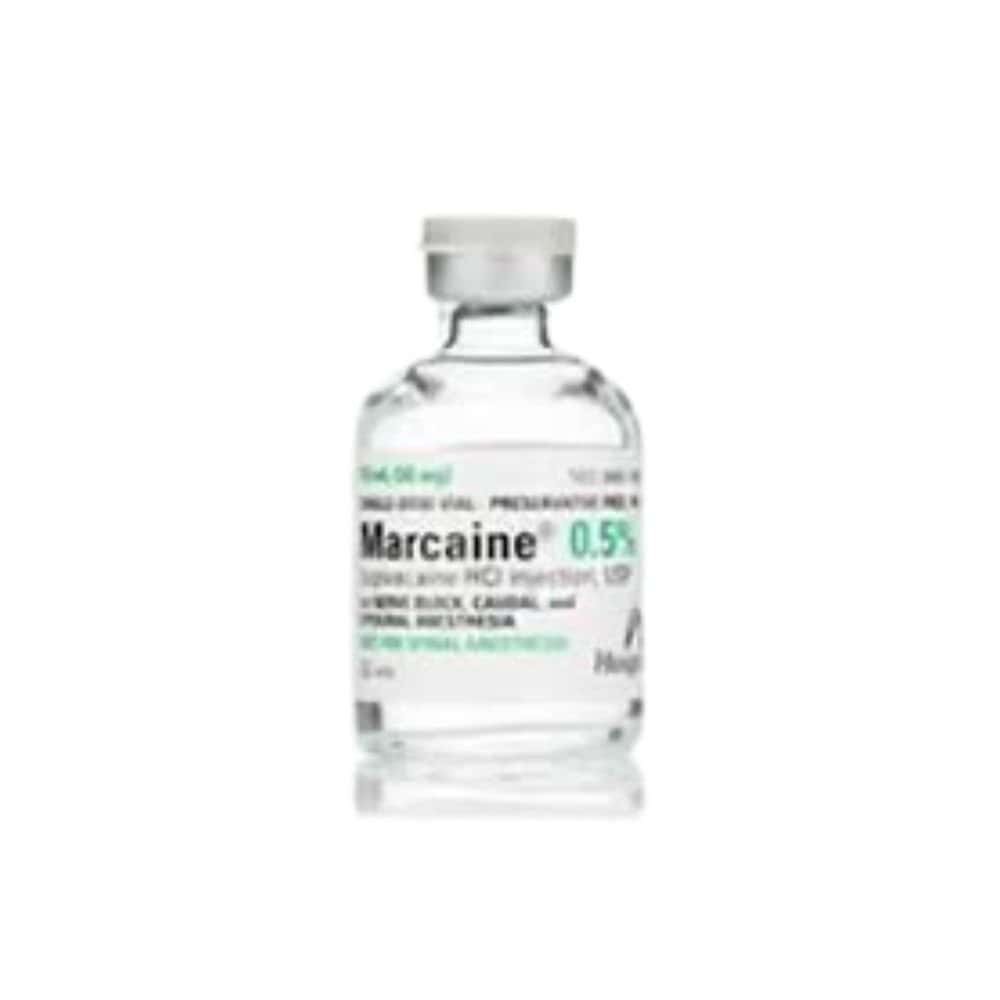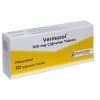No products in the cart.
Return To ShopMarcaine
Marcaine (bupivacaine hydrochloride) is a long-acting local anesthetic used for surgical procedures, dental work, and pain management through nerve blocks and epidural injections. This amide-type anesthetic provides extended pain relief lasting several hours, making it ideal for major surgeries and postoperative pain control. For patients seeking affordable anesthetic medications, working with qualified healthcare providers ensures proper administration, appropriate monitoring, and access to authentic treatments with proper safety oversight for managing complex medical procedures effectively.
- Prescription Required
| Brand | Form | Price | Qty | Action |
|---|---|---|---|---|
| Marcaine Heavy | 0.5% 5 x 4mL Vial | $15.00 | ||
| Marcaine Brand | 0.5% 20mL Vial | $11.00 |
- Please note all prices are in US dollars
Marcaine (Bupivacaine) – Complete Product Information
Marcaine (bupivacaine hydrochloride) represents a cornerstone in modern anesthesia practice, offering superior duration and potency compared to other local anesthetics. As an amide-type local anesthetic, bupivacaine works by blocking sodium channels in nerve membranes, preventing the generation and conduction of nerve impulses that transmit pain signals to the brain.
The medication’s mechanism involves increasing the threshold for electrical excitation in nerve fibers, slowing nerve impulse propagation, and reducing the rate of action potential rise. This creates a progressive loss of sensation in the following order: pain, temperature, touch, proprioception, and finally skeletal muscle tone. The drug’s high lipid solubility and protein binding capacity contribute to its prolonged duration of action, with effects lasting 4-8 hours depending on the concentration and injection site.
Marcaine is available in three concentrations – 0.25%, 0.5%, and 0.75% – each designed for specific procedures and levels of motor blockade required. The 0.25% concentration provides sensory block with minimal motor impairment, while the 0.75% solution produces complete motor block necessary for major abdominal surgeries. Formulations with epinephrine 1:200,000 extend duration and reduce systemic absorption by causing local vasoconstriction.
Clinical Applications and Effectiveness: Marcaine’s versatility makes it suitable for numerous procedures including epidural anesthesia, peripheral nerve blocks, local infiltration, dental procedures, and retrobulbar blocks for eye surgery. The medication’s long duration reduces the need for repeated injections, improving patient comfort and procedural efficiency.
For patients requiring pain management medications, Marcaine offers several advantages over shorter-acting anesthetics. The extended analgesic period often persists beyond complete motor recovery, providing postoperative pain relief that reduces opioid requirements. This characteristic makes it particularly valuable for outpatient procedures where prolonged pain control is desired.
Pharmacokinetics and Duration: After injection, Marcaine reaches peak plasma levels within 30-45 minutes, with effects beginning within 2-10 minutes for most applications. The drug undergoes hepatic metabolism via conjugation with glucuronic acid, with only 6% excreted unchanged in urine. The elimination half-life averages 2.7 hours in adults but extends to 8.1 hours in neonates, requiring dosage adjustments in pediatric populations.
The medication’s high protein binding (95%) contributes to its prolonged duration while reducing placental transfer, making it suitable for obstetrical procedures when used in appropriate concentrations. Plasma protein binding can be affected by acidosis, systemic diseases, or competition from other drugs, potentially altering individual tolerance and effectiveness.
Safety Considerations and Monitoring: While highly effective, Marcaine requires careful administration due to its potential for serious cardiovascular and central nervous system toxicity. The drug’s long duration means that toxic effects, if they occur, may persist for several hours. Proper dosing, incremental injection techniques, and continuous monitoring are essential for safe use.
The medication should be used with particular caution in elderly patients, those with cardiovascular disease, and patients with hepatic impairment who may have reduced drug clearance. Aspiration before injection is critical to avoid intravascular administration, which can lead to rapid systemic toxicity and potentially fatal cardiac arrhythmias.
For patients managing complex surgical procedures, coordination with anesthesiologists and pain management specialists is essential. Those exploring affordable surgical medication options should work with qualified healthcare providers to ensure proper procedure selection, appropriate dosing, and ongoing monitoring for both therapeutic effectiveness and potential complications, as anesthetic medications require specialized expertise and should never be administered without appropriate medical supervision and emergency preparedness protocols.
| Brand | Marcaine Heavy, Marcaine Brand |
|---|---|
| Form | 0.5% 5 x 4mL Vial, 0.5% 20mL Vial |
Marcaine can cause various side effects ranging from common local reactions to serious systemic toxicity. Most adverse effects are dose-related and result from high plasma levels due to overdosage, rapid absorption, or unintentional intravascular injection.
Central Nervous System Effects:
- Early CNS stimulation: Restlessness, anxiety, dizziness, tremors
- Sensory disturbances: Tinnitus, blurred vision, metallic taste
- Speech problems: Slurred or incoherent speech
- Numbness: Tingling of mouth, lips, and tongue
- Progression to convulsions: Tonic-clonic seizures
- CNS depression: Drowsiness progressing to unconsciousness
- Respiratory depression: Reduced breathing rate and depth
- Respiratory arrest: Complete cessation of breathing
Cardiovascular System Reactions:
- Myocardial depression: Reduced heart muscle contractility
- Bradycardia: Abnormally slow heart rate
- Hypotension: Dangerously low blood pressure
- Heart block: Disrupted electrical conduction
- Ventricular arrhythmias: Irregular heartbeats originating in ventricles
- Ventricular tachycardia: Rapid ventricular heart rate
- Ventricular fibrillation: Chaotic ventricular rhythm
- Cardiac arrest: Complete heart stoppage
- Decreased cardiac output: Reduced blood circulation
Allergic and Hypersensitivity Reactions:
- Urticaria: Hives and skin welts
- Pruritus: Severe itching
- Erythema: Skin redness and inflammation
- Angioedema: Swelling of face, lips, throat
- Laryngeal edema: Throat swelling affecting breathing
- Bronchospasm: Airway constriction
- Anaphylaxis: Severe systemic allergic reaction
- Tachycardia: Rapid heart rate from allergic response
Neurologic Complications:
- High spinal block: Excessive spread of epidural anesthesia
- Total spinal block: Complete paralysis including respiratory muscles
- Persistent anesthesia: Prolonged numbness beyond expected duration
- Paresthesia: Abnormal tingling or burning sensations
- Motor weakness: Temporary or permanent muscle weakness
- Paralysis: Loss of motor function
- Sphincter dysfunction: Loss of bladder or bowel control
- Sexual dysfunction: Temporary loss of sensation and function
Epidural and Spinal Anesthesia Complications:
- Hypotension: Blood pressure drop from sympathetic blockade
- Urinary retention: Inability to empty bladder
- Headache: Spinal headache from dural puncture
- Backache: Pain at injection site
- Meningitis: Infection of spinal membranes
- Epidural hematoma: Blood collection in epidural space
- Neurological deficits: Permanent nerve damage
- Cauda equina syndrome: Lower spinal nerve compression
Local Injection Site Reactions:
- Pain and tenderness: Discomfort at injection site
- Swelling and inflammation: Local tissue reaction
- Tissue necrosis: Death of surrounding tissue
- Infection: Bacterial contamination of injection site
- Nerve damage: Direct trauma to nerve structures
- Hematoma formation: Blood collection from vessel injury
Systemic Effects from Absorption:
- Nausea and vomiting: Gastrointestinal upset
- Chills: Uncontrolled shivering
- Pupil constriction: Reduced pupil size
- Elevated temperature: Mild fever response
- Excessive sweating: Increased perspiration
- Syncope: Fainting episodes
Obstetrical Use Complications:
- Maternal hypotension: Dangerous blood pressure drops
- Fetal bradycardia: Reduced fetal heart rate
- Prolonged labor: Extended second stage of delivery
- Increased forceps delivery: Need for assisted delivery
- Diminished maternal reflexes: Reduced pushing effectiveness
- Neonatal effects: Temporary muscle tone reduction in newborns
Special Population Risks:
- Elderly patients: Increased sensitivity and hypotension risk
- Cardiac disease patients: Enhanced cardiovascular depression
- Hepatic impairment: Prolonged drug elimination
- Pediatric patients: Higher risk of systemic toxicity
- Pregnant patients: Potential for maternal and fetal complications
Drug Interaction Effects:
- MAOI interactions: Severe hypertension with epinephrine formulations
- Tricyclic antidepressants: Enhanced cardiovascular effects
- Beta-blockers: Masked early signs of toxicity
- Ergot alkaloids: Persistent severe hypertension
- Phenothiazines: Altered epinephrine effects
Emergency Signs Requiring Immediate Medical Attention:
- Sudden confusion or agitation: Early CNS toxicity signs
- Seizure activity: Any form of convulsions
- Breathing difficulties: Respiratory depression or arrest
- Chest pain or palpitations: Cardiac involvement
- Severe allergic reactions: Swelling, rash, difficulty breathing
- Loss of consciousness: CNS depression
- Severe hypotension: Dangerous blood pressure drops
Critical Safety Warning: Marcaine 0.75% concentration is not recommended for obstetrical use due to reports of cardiac arrest with difficult resuscitation. The medication should only be administered by clinicians experienced in local anesthetic toxicity management with immediate access to resuscitation equipment and trained personnel.
Overdose Management: Treatment focuses on maintaining airway, breathing, and circulation. Immediate oxygen administration, assisted ventilation, and cardiovascular support are essential. Lipid emulsion therapy may be considered for severe bupivacaine toxicity to help bind the drug and reduce cardiac effects.
Marcaine (bupivacaine hydrochloride) has extensive FDA-approved indications for producing local or regional anesthesia across numerous medical, surgical, and dental procedures, based on decades of clinical research demonstrating its effectiveness and appropriate safety profile when used correctly:
Primary Indications:
Surgical Anesthesia:
- Abdominal surgery: Complete motor blockade with 0.75% concentration
- Orthopedic procedures: Joint surgeries, bone procedures, extremity operations
- Urological surgery: Procedures requiring regional anesthesia
- Gynecological surgery: Non-obstetrical procedures in appropriate concentrations
- Plastic and reconstructive surgery: Extended procedures requiring prolonged anesthesia
- General surgery: Various procedures requiring regional anesthetic techniques
Obstetrical Procedures:
- Labor epidural analgesia: 0.25% and 0.5% concentrations only
- Cesarean section anesthesia: Epidural or spinal techniques
- Episiotomy repair: Local infiltration for postpartum procedures
- Pudendal block: Pain relief during delivery
- Caudal anesthesia: Lower body procedures during pregnancy
Dental and Oral Surgery:
- Complex extractions: Extended duration for surgical tooth removal
- Periodontal surgery: Gum procedures requiring prolonged anesthesia
- Endodontic procedures: Root canal and related treatments
- Oral surgery: Implant placement, jaw surgery, tumor removal
- Maxillofacial procedures: Complex facial and jaw reconstructions
Administration Routes and Concentrations:
Local Infiltration (0.25%):
- Wound repair: Extended anesthesia for complex closures
- Minor surgical procedures: Skin lesion removal, biopsies
- Postoperative pain control: Local injection for continued pain relief
- Diagnostic procedures: Painful investigative techniques
Peripheral Nerve Block (0.25% and 0.5%):
- Brachial plexus block: Upper extremity surgery anesthesia
- Sciatic nerve block: Lower extremity procedures
- Femoral nerve block: Thigh and knee surgery
- Intercostal blocks: Chest wall procedures and pain management
- Digital blocks: Finger and toe procedures
- Ankle blocks: Foot surgery anesthesia
Epidural Anesthesia (0.25%, 0.5%, 0.75%):
- Lumbar epidural: Lower abdominal and lower extremity surgery
- Thoracic epidural: Upper abdominal and chest procedures
- Continuous epidural: Extended surgeries and postoperative pain control
- Labor analgesia: Pain relief during childbirth (0.25% and 0.5% only)
Caudal Block (0.25% and 0.5%):
- Pediatric procedures: Lower body surgery in children over 12
- Perineal surgery: Procedures involving genital and anal areas
- Lower extremity procedures: Leg and foot surgeries
- Urological procedures: Bladder and prostate operations
Specialized Applications:
- Retrobulbar block (0.75%): Eye surgery requiring complete akinesia
- Sympathetic block (0.25%): Chronic pain management
- Epidural test dose (0.5% with epinephrine): Safety verification before full dose
Dosing Guidelines and Administration:
Maximum Dosage Recommendations:
- Without epinephrine: Maximum 175 mg per procedure
- With epinephrine 1:200,000: Maximum 225 mg per procedure
- Daily maximum: 400 mg in 24 hours (until further experience gained)
- Repeat dosing: May repeat up to every 3 hours as needed
- Elderly patients: Reduced doses based on physical status
Concentration-Specific Effects:
- 0.25% solution: Incomplete motor block, suitable for procedures not requiring muscle relaxation
- 0.5% solution: Moderate motor blockade, adequate for most surgical procedures
- 0.75% solution: Complete motor block, reserved for abdominal surgery and retrobulbar anesthesia
How long does Marcaine last compared to other anesthetics?
Marcaine provides significantly longer anesthesia than most other local anesthetics. While lidocaine typically lasts 1-2 hours, Marcaine can provide 4-8 hours of pain relief depending on the concentration and location of injection. Dental injections may last up to 7 hours, which is two to three times longer than lidocaine or mepivacaine for similar procedures.
Why cant I use the 0.75% concentration for childbirth?
The 0.75% concentration of Marcaine is contraindicated for obstetrical anesthesia due to reports of cardiac arrest with difficult resuscitation in pregnant women. Most cases involved the 0.75% strength, and resuscitation proved extremely challenging or impossible despite proper preparation. Only 0.25% and 0.5% concentrations should be used for labor and delivery procedures.
What should I expect during recovery from Marcaine anesthesia?
Recovery from Marcaine follows a predictable pattern with sensation returning before motor function. You may experience a period of continued pain relief even after some feeling returns. During recovery, avoid chewing, biting, or applying heat to numb areas to prevent injury. Complete recovery typically occurs within 4-12 hours depending on the dose and injection site.
Can Marcaine be used with other anesthetics?
Mixing Marcaine with other local anesthetics is generally not recommended due to insufficient data on clinical safety and effectiveness of such combinations. If multiple anesthetics are needed, they should be administered separately with appropriate time intervals. Your anesthesiologist will determine the safest approach for your specific procedure.
Why do I need to avoid certain activities after dental Marcaine?
Due to Marcaine's long duration (up to 7 hours for dental procedures), theres significant risk of inadvertent trauma to numb tissues. Patients should avoid chewing solid foods, drinking hot beverages, or testing the numb area by biting or probing until sensation fully returns. This prevents injuries to tongue, lips, and inside of the mouth that you wouldnt feel occurring.
Is Marcaine safe during pregnancy and breastfeeding?
Marcaine is considered relatively safe during pregnancy when used appropriately, with high protein binding reducing placental transfer. However, only 0.25% and 0.5% concentrations should be used for obstetrical procedures. The medication is excreted in breast milk, so nursing mothers should discuss timing of procedures and potential temporary interruption of breastfeeding with their healthcare provider.
How is Marcaine toxicity treated if it occurs?
Treatment focuses on immediate airway management, oxygen administration, and cardiovascular support. Seizures are controlled with anticonvulsants, and cardiac arrhythmias require specific antiarrhythmic protocols. Lipid emulsion therapy has shown promise in severe bupivacaine toxicity. All facilities using Marcaine must have immediate access to resuscitation equipment and trained personnel.
Can elderly patients safely receive Marcaine?
Elderly patients can receive Marcaine but require lower doses and careful monitoring. Age-related changes in drug metabolism and cardiovascular function increase sensitivity to both therapeutic and toxic effects. Blood pressure monitoring is particularly important as elderly patients, especially those with hypertension, face higher risk of significant hypotension during anesthesia.
What makes Marcaine different from lidocaine?
The primary differences are duration and potency. Marcaine lasts 3-4 times longer than lidocaine, has higher potency, and provides more complete motor blockade. However, Marcaine also has greater potential for cardiovascular toxicity and requires more careful administration. The choice between them depends on procedure duration, need for motor blockade, and patient factors.
How quickly does Marcaine start working?
Marcaine typically begins working within 2-10 minutes after injection, though onset can vary by location and concentration. Dental injections usually provide anesthesia within 2-10 minutes, while epidural administration may take 10-20 minutes for full effect. The 0.25% concentration may have slower onset than higher concentrations but still provides reliable anesthesia.
What should I tell my doctor before receiving Marcaine?
Inform your healthcare provider about all medications, allergies to local anesthetics, heart conditions, liver disease, breathing problems, and any previous reactions to anesthesia. Mention if youre taking blood thinners, heart medications, antidepressants, or MAO inhibitors. Pregnant or breastfeeding women should discuss timing and concentration selection for optimal safety.
Can I drive after receiving Marcaine?
Avoid driving until the anesthetic effect completely wears off and you feel fully alert. Marcaine can cause temporary blurred vision, dizziness, or drowsiness, especially in the first hour after injection. For dental procedures, wait until lip and tongue sensation fully returns. For epidural anesthesia, additional recovery time and medical clearance are typically required.
How is Marcaine stored and prepared?
Marcaine should be stored at room temperature (68-77°F) and protected from light if it contains epinephrine. Solutions without epinephrine can be autoclaved if needed. Epinephrine-containing solutions shouldnt be used if they turn pink or darker than slightly yellow, or if they contain precipitates. Single-dose vials should be discarded after initial use.
Are there alternatives if I cant use Marcaine?
Several alternatives exist including other pain management medications and different local anesthetics like lidocaine, mepivacaine, or chloroprocaine. The choice depends on your specific medical conditions, allergies, and procedure requirements. Your anesthesiologist can recommend the safest and most effective alternative for your situation.
The content on this page has been supplied to telavivpharma.com by an independent third party contracted to provide information for our website. telavivpharma.com relies on these third parties to create and maintain this information and cannot guarantee the accuracy or reliability of the information that has been provided to us.
The drug information provided here is only a summary and does not contain all the list of possible side effects and drug interactions regarding this medication. Be sure to contact your doctor or pharmacist if you have any specific question or concern. If you require any advice or information about the drugs on this page, a medical condition or treatment advice, you should always speak to a healthcare professional.
Please note that not all products, including any referenced in this page, are shipped by our affiliated Israel Pharmacy. We are affiliated with other dispensaries that ship product to our customers from the following jurisdictions: Canada, New Zealand, Turkey and United Kingdom. The items in your order maybe shipped from any of the above jurisdictions. The products are sourced from various countries as well as those listed above. Rest assured, we only affiliate with our authorized dispensaries that procure product through reliable sources.
Required
Send Your Prescription
Secure Payment
No Hidden Fees
Fast Shipping
Typically Under 7 days

From: $2,450.00




Reviews
There are no reviews yet.